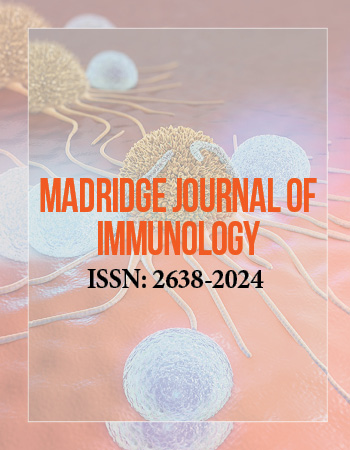International Conference on Immunology and Immunotechnology
November 1-3, 2017 Barcelona, Spain
Production of the Human Single Chain-Transbodies against NS5A Leading to Hepatitis C Virus Replication Inhibition
1Graduate Program in Immunology, Faculty of Medicine Siriraj Hospital, Mahidol University, Thailand
2Center of Research excellence on Therapeutic Proteins and Antibody Engineering, Department of Parasitology, Faculty of Medicine Siriraj Hospital, Mahidol University, Thailand
3Faculty of Allied Health Sciences, Thammasat University, Thailand
4School of parasitology, Institute of Medicine, Suranaree University, Thailand
Hepatitis C virus (HCV) infects ~3% of world population causing chronic hepatitis which frequently leads to liver fibrosis, cirrhosis, and hepatocellular carcinoma. NS5A is a multifunctional and pivotal protein which has an important role in the viral replication, the virus morphogenesis, and pathogenesis. Thus, the NS5A protein is an attractive novel anti-HCV target. In this study, human single chain (HuscFv) that inhibited the bioactivity of HCV was generated using antibody phage display library as the antibody producing tools for the ultimate purpose of developing further as a safe, side effect free and viral mutation tolerable novel anti-HCV remedy. Recombinant (r) NS5A was produced, purified, and used as bait for fishing out phage clones that displayed the NS5A-HuscFv from the established HuscFv phage display library. Based on indirect ELISA and Western blot analysis, 5 phage transfected E. coli clones produced rNS5A-bound-HuscFvs. The HuscFvs of these E. coli clones were linked to a cell penetrating peptide (Nonaarginine; R9) to make cell penetrating format. The R9-HuscFvs did not cause cytotoxicity, entered the huh7 cells (transbodies) and inhibited HCV replication (significantly reduced HCV RNA). The HCV-infected cells treated with the transbodies had up-regulation of the innate immune response genes. Computerized homology modeling and intermolecular docking (simulation) indicated that the HuscFvs formed interface contact with several critical residues of NS5A leading to interference with the protein functions and hence HCV replication inhibition. The transbodies produced in this study are worthwhile developing and testing further for future use as safe, interferon-free, broadly effective and robust DAAs.
Biography:
KittiratGlab-ampai is a last-year Ph.D. student in Immunology program, Faculty of Medicine Siriraj Hospital, Mahidol University, Thailand. His research focuses on the production of antibodies to infectious diseases, especially Hepatitis C. He received the Royal Golden Jubilee Ph.D. scholarship, from Thailand research fund. His interests in the field of immunology and virology. His Ph.D. work was published in Biochemical and Biophysical Research Communications Journal, 2016. He also briefly had a research over Zika virus while working in Australia which is a part of the recent publication in Scientific Reports journal, 2017.


